Control+Alt+Disrupt: A Rebel's Guide to Brand Strategy for the Bold
The marketing landscape of 2025 demands a fundamental shift in how we approach brand strategy. Artificial intelligence (AI) is no longer a...
10 min read
Stephanie Unterweger : Sep 3, 2025 4:22:09 PM

Imagine a marketing department that operates 24/7, delivering enterprise-level results without enterprise-level budgets. The convergence of Generative AI and Autonomous Agents isn’t just transforming marketing operations—it’s redefining what’s possible for businesses of every size.
Companies like DoorDash have achieved $3M in operational savings, and Octopus Energy now handles 44% of customer inquiries through AI, illustrating how quickly these tools can deliver measurable results. This article provides a strategic and actionable AI guide for marketing executives and SMB owners to transform their marketing efforts with AI, driving growth, efficiency, and measurable ROI.

Marketing leaders face growing pressure to meet these challenges:
Generative AI and autonomous agents directly address these pain points, transforming marketing departments into profit centers.
According to Boston Consulting Group:

The convergence of Generative AI and Autonomous Agents is rewriting marketing’s playbook, but understanding their unique capabilities and how they differ from traditional AI is key to leveraging their potential.
Generative AI represents a leap from automation to creativity. Powered by advanced machine learning models like GPT-4 or DALL-E, generative AI is designed to create new, original content rather than simply analyzing or processing existing data.
Generative AI represents a paradigm shift in how machines augment human capabilities. Unlike traditional AI that simply follows predefined rules or makes basic predictions, generative AI possesses the remarkable ability to create, innovate, and engage in ways that mirror human cognitive processes. It's the difference between a calculator that computes numbers and an artist that can paint a masterpiece from a simple description.
At its core, generative AI is a sophisticated system that learns patterns from vast amounts of data to create entirely new outputs – whether that's writing compelling copy, designing visual assets, or crafting personalized customer experiences. But what makes it truly revolutionary for marketing isn't just its creative capabilities; it's its ability to understand context, adapt to feedback, and continuously improve its outputs based on real-world results.
Think of generative AI as your marketing team's creative co-pilot. It doesn't replace human creativity or strategic thinking; instead, it amplifies them.
When a marketer prompts a generative AI system, they're not simply requesting a mechanical response – they're engaging in a collaborative process where the AI can ideate, iterate, and innovate alongside human experts.
For marketers, this means transcending the traditional limitations of scale and personalization. A single marketer can now generate hundreds of unique, targeted content variations, test multiple creative approaches simultaneously, and optimize campaigns in real-time based on performance data. This isn't just automation; it's augmented intelligence that enhances both creativity and productivity.
What sets modern generative AI apart is its understanding of nuance and context. These systems can grasp brand voice, audience preferences, and market trends, then synthesize this understanding into original content that feels authentic and purposeful. They can adapt their outputs based on specific channels, audience segments, or campaign objectives, making them invaluable partners in sophisticated marketing strategies.
However, it's crucial to understand that generative AI is not a magic solution – it's a powerful tool that requires human guidance, strategic oversight, and ethical consideration.
The most successful implementations of generative AI in marketing don't aim to automate creativity out of existence but rather to elevate human creativity to new heights by handling the repetitive aspects of content creation and campaign optimization.
As we move into an era where marketing success increasingly depends on the ability to deliver personalized, scalable, and engaging experiences, generative AI becomes not just a technological advancement but a fundamental shift in how we approach marketing challenges and opportunities.
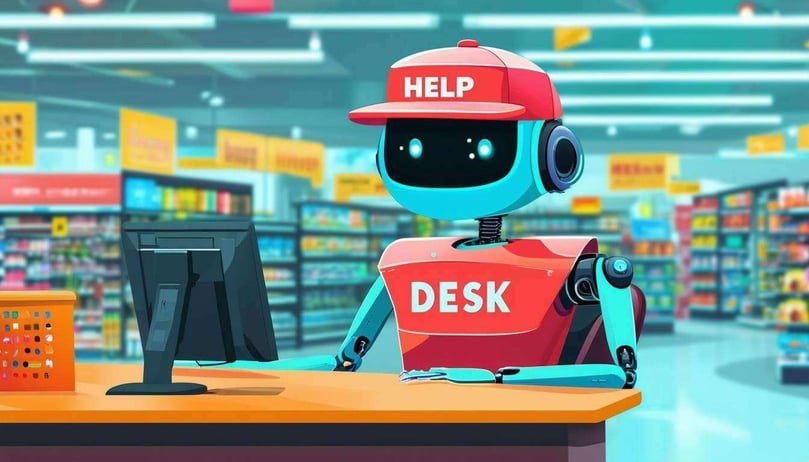
Autonomous agents take automation to the next level by independently performing complex, multi-step tasks without requiring human intervention. They're not just tools that follow instructions but sophisticated digital partners that think, act, and adapt with near-human levels of understanding. They are decision-makers, constantly analyzing data, adapting to changes, and executing campaigns or support strategies.
While traditional automation handles repeatable tasks, autonomous agents possess something far more valuable: the ability to make contextual decisions, learn from outcomes, and operate independently toward defined marketing objectives.
Think of autonomous agents as your marketing department's elite task force. They don't just execute pre-programmed routines; they actively monitor your marketing ecosystem, identify opportunities and threats, and take intelligent action – all while operating within carefully defined parameters. This represents a fundamental shift from "if-then" automation to "what-if" intelligence.
What makes autonomous agents truly revolutionary is their ability to orchestrate complex marketing operations across multiple channels, platforms, and touchpoints simultaneously. They're constantly processing vast amounts of data, identifying patterns, and making micro-adjustments that would be impossible for human teams to manage at scale. This isn't just automation; it's intelligent orchestration.
Here's an enhanced breakdown of their capabilities and benefits:
Risk Management: Monitor for anomalies and automatically adjust strategies to minimize potential issues
How They Differ from Traditional AI
| Feature | Generative AI | Autonomous Agents |
|---|---|---|
| Core Function | Creative generation of content and insights | Independent execution of multi-step processes |
| Primary Use Cases | Content creation, predictive analysis, campaign optimization | Customer engagement, campaign execution, ad spend management |
| Relation to Data | Learns from historical data to create new content | Analyzes real-time data to adapt and act |
| Role in Marketing | Augments creativity and insights for marketers | Automates execution and frees up human resources |
The synergy between these technologies creates a self-driving marketing department:
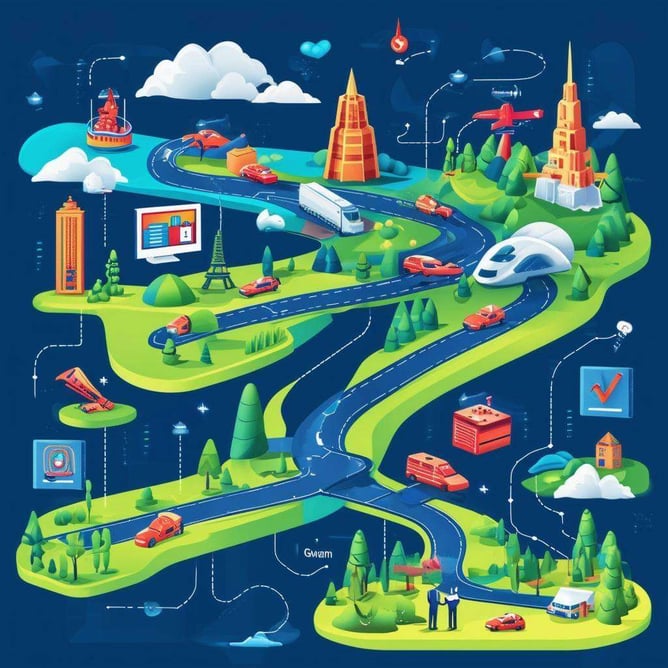

Building a strong foundation ensures that your Generative AI and Autonomous Agents implementations are aligned with business goals, regulatory compliance, and team readiness.
Assess AI Objectives and Feasibility
Engage Expert Partners
Prioritize High-Impact, Low-Risk Use Cases
Define KPIs and Align with Teams
Initiate Change Management
This phase focuses on piloting AI tools, monitoring their performance, and refining workflows for scalability.
Deploy Pilot AI Tools
Generative AI Tools:
Autonomous Agent Tools:
Establish Monitoring Protocols
Create AI Content and Brand Guidelines
Analyze Feedback for Optimization
Prepare for Scaling
This phase focuses on scaling AI solutions organization-wide while continuously optimizing their performance for long-term success.
Expand AI Across Marketing Operations
Fine-Tune Algorithms and Processes
Integrate Advanced AI Features
Establish Long-Term AI Governance
Communicate ROI and Insights

Continuous training to maintain top-tier AI marketing capabilities
The future of marketing is here. To remain competitive, your organization must embrace AI-powered marketing as a core capability.
Contact Brands at Play to schedule your FREE consultation, and learn about our proprietary AI3 Readiness Assessment technology. Our AI3 system, powered by advanced algorithms, examines over 80 data points and processes your organization's data to design:
Brands at Play is Cleveland’s premier AI and marketing automation strategy firm. We specialize in helping organizations transform their marketing operations into growth engines, delivering measurable results through cutting-edge AI integration.
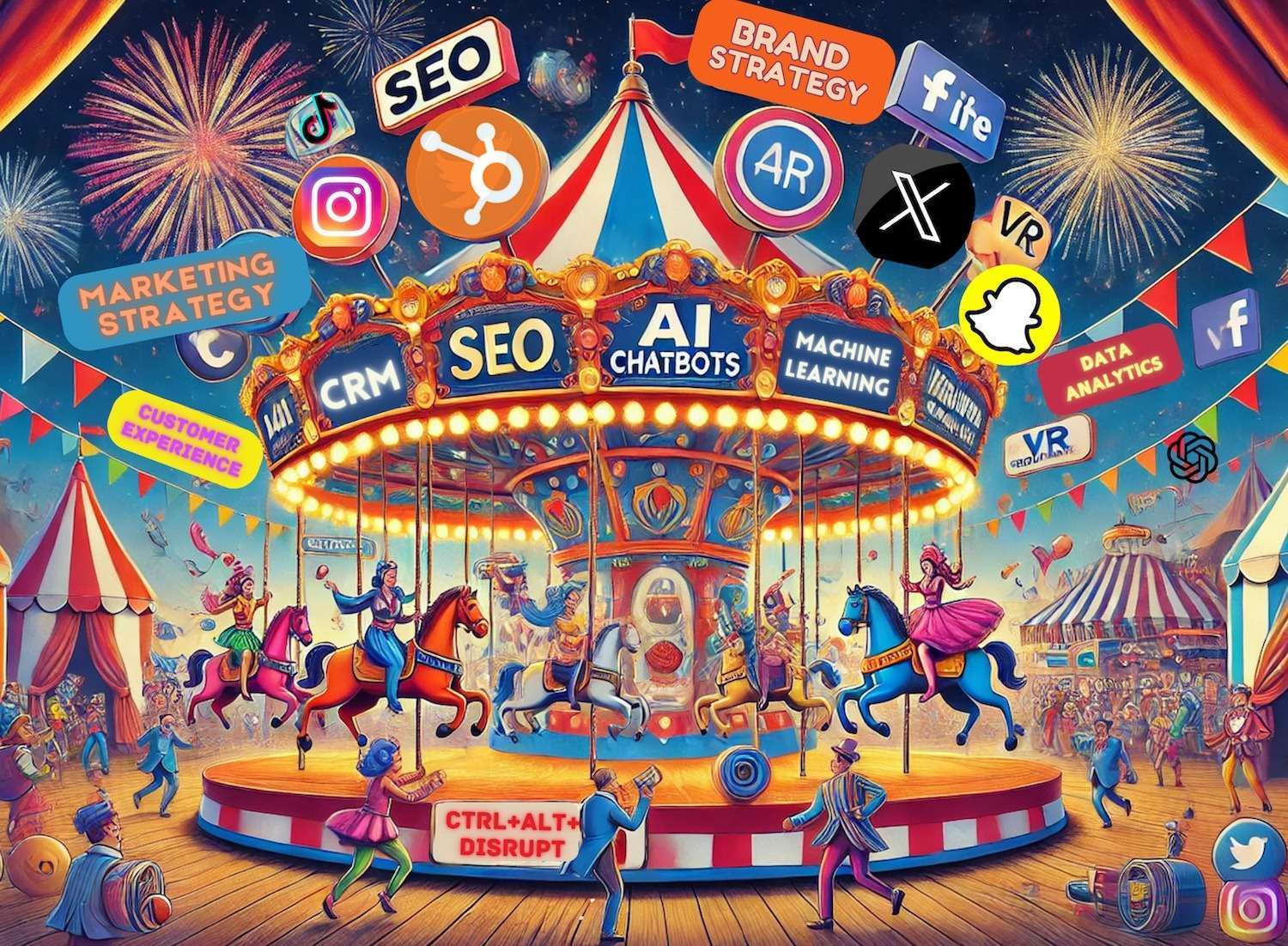
The marketing landscape of 2025 demands a fundamental shift in how we approach brand strategy. Artificial intelligence (AI) is no longer a...
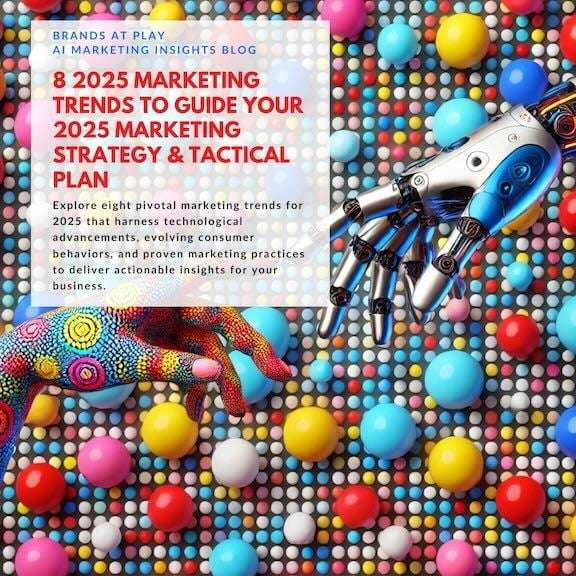
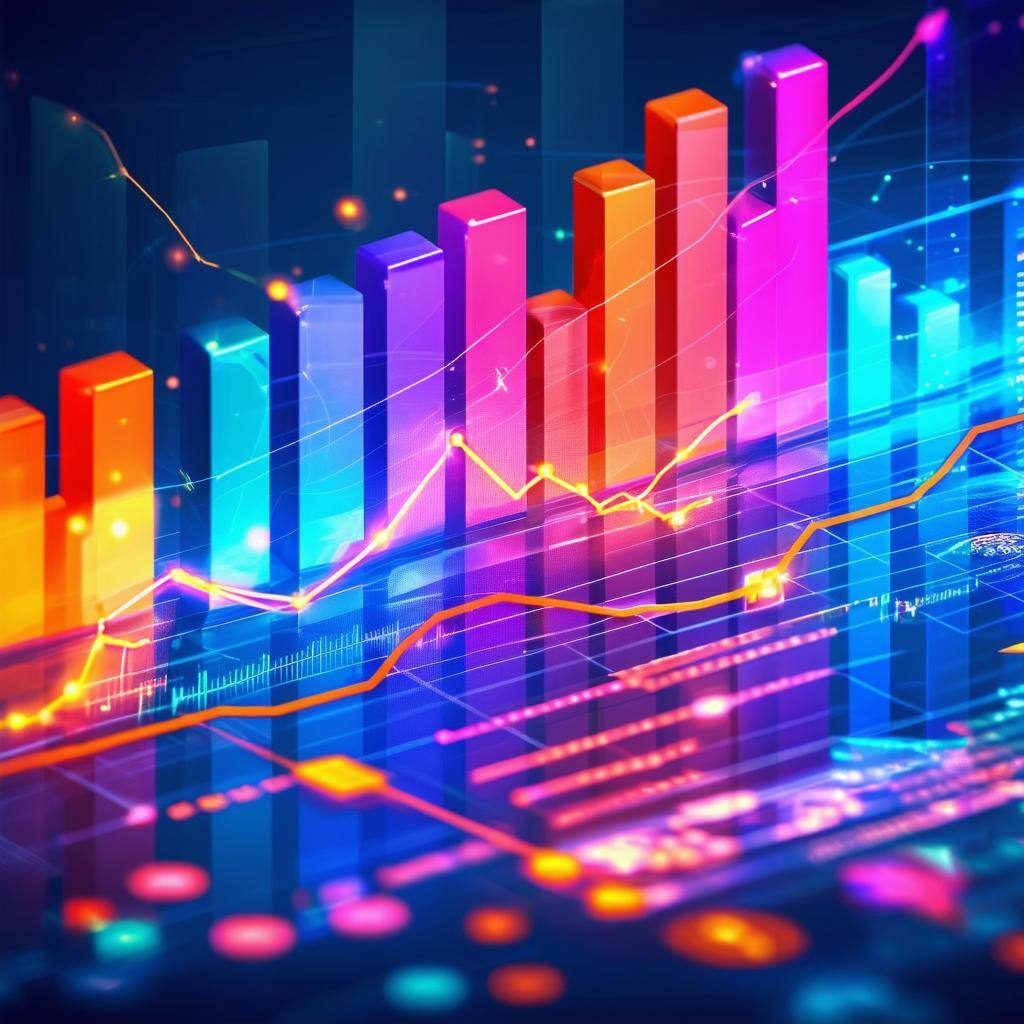
The Evolution of Real-Time Marketing Marketing campaigns once moved at the speed of human analysis, but artificial intelligence has fundamentally...